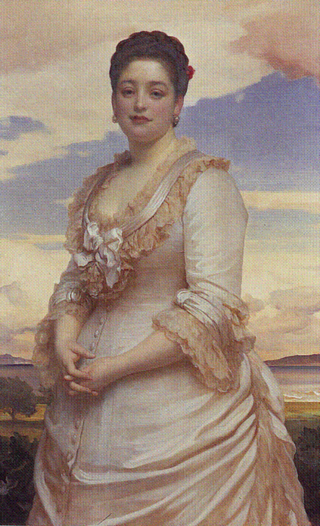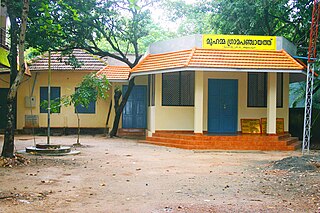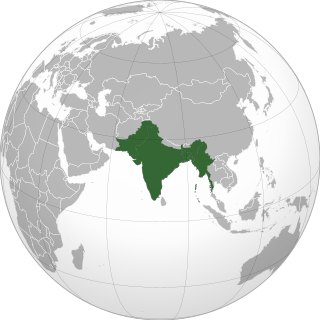Related Research Articles

The Indian independence movement was a series of historic events with the ultimate aim of ending British rule in India also known as British Raj. It lasted until 1947.

Crewe is a railway town and civil parish in the unitary authority of Cheshire East in Cheshire, England. The civil parish of Crewe had a population of 55,318 in the 2021 census. The larger Crewe built-up area, which also covers parts of the adjacent civil parishes of Willaston, Shavington cum Gresty and Wistaston, had a total population of 76,437 in 2021.

Gwyneth Patricia Dunwoody was a British Labour Party politician, who was a Member of Parliament (MP) for Exeter from 1966 to 1970, and then for Crewe from February 1974 to her death in 2008. She was a moderate socialist and had a reputation as a fiercely independent parliamentarian, described as "intelligent, obstinate, opinionated and hard-working".

The War Office has referred to several British government organisations in history, all relating to the army. It was a department of the British Government responsible for the administration of the British Army between 1857 and 1964, when its functions were transferred to the new Ministry of Defence (MoD). It was at that time, equivalent to the Admiralty, responsible for the Royal Navy (RN), and the Air Ministry, which oversaw the Royal Air Force (RAF). The name 'War Office' is also given to the former home of the department, located at the junction of Horse Guards Avenue and Whitehall in central London. The landmark building was sold on 1 March 2016 by HM Government for more than £350 million, on a 250 year lease for conversion into a luxury hotel and residential apartments.

Robert Offley Ashburton Crewe-Milnes, 1st Marquess of Crewe,, known as The Honourable Robert Milnes from 1863 to 1885, The Lord Houghton from 1885 to 1895 and as The Earl of Crewe from 1895 to 1911, was a British Liberal politician, statesman and writer.

Hannah Primrose, Countess of Rosebery was the daughter of Baron Mayer de Rothschild and his wife Juliana. After inheriting her father's fortune in 1874, she became the richest woman in Britain. In 1878, Hannah de Rothschild married Archibald Primrose, 5th Earl of Rosebery, and was thereafter known as the Countess of Rosebery.
The Planning Commission was an institution in the Government of India, which formulated India's Five-Year Plans, among other functions.
The Indian Civil Service (ICS), officially known as the Imperial Civil Service, was the higher civil service of the British Empire in India during British rule in the period between 1858 and 1947.

The Indian Home Rule movement was a movement in British India on the lines of the Irish Home Rule movement and other home rule movements. The movement lasted around two years between 1916–1918 and is believed to have set the stage for the independence movement under the leadership of Annie Besant and Bal Gangadhar Tilak to the educated English speaking upper class Indians. In 1920 All India Home Rule League changed its name to Swarajya Sabha.
The Justice Party, officially the South Indian Liberal Federation, was a political party in the Madras Presidency of British India. It was established on 20 November 1916 in Victoria Public Hall in Madras by Dr C. Natesa Mudaliar and co-founded by T. M. Nair, P. Theagaraya Chetty and Alamelu Mangai Thayarammal as a result of a series of non-Brahmin conferences and meetings in the presidency. Communal division between Brahmins and non-Brahmins began in the presidency during the late-19th and early-20th century, mainly due to caste prejudices and disproportionate Brahminical representation in government jobs. The Justice Party's foundation marked the culmination of several efforts to establish an organisation to represent the non-Brahmins in Madras and is seen as the start of the Dravidian Movement.

The British Raj was the rule of the British Crown on the Indian subcontinent; it is also called Crown rule in India, or Direct rule in India, and lasted from 1858 to 1947. The region under British control was commonly called India in contemporaneous usage and included areas directly administered by the United Kingdom, which were collectively called British India, and areas ruled by indigenous rulers, but under British paramountcy, called the princely states. The region was sometimes called the Indian Empire, though not officially.

Panchayati raj is the system of local self-government of villages in rural India as opposed to urban and suburban municipalities.

The Provisional Government of India was a provisional government-in-exile established in Kabul, Afghanistan on December 1, 1915 by the Indian Independence Committee during World War I with support from the Central Powers. Its purpose was to enrol support from the Afghan Emir as well as Tsarist Russia, China, and Japan for the Indian Movement. Established at the conclusion of the Kabul Mission composed of members of the Berlin Committee, German and Turkish delegates, the provisional government was composed of Mahendra Pratap as President, Maulana Barkatullah as Prime Minister, Deobandi Maulavi Ubaidullah Sindhi as Home Minister, Deobandi Maulavi Bashir as War Minister, and Champakraman Pillai as Foreign Affairs Minister. The provisional government found significant support from the internal administration of the Afghan government, although the Emir refused to declare open support, and ultimately, under British pressure it was forced to withdraw from Afghanistan in 1919.
The Twipra Kingdom was one of the largest ancient - historical kingdoms of the Tripuri people in Northeast India.

The Liberal government of the United Kingdom of Great Britain and Ireland that began in 1905 and ended in 1915 consisted of two ministries: the first led by Henry Campbell-Bannerman and the final three by H. H. Asquith.

Anthony Edward Timpson, is a British politician who was elected as the Member of Parliament (MP) for Eddisbury in Cheshire at the 2019 general election. He is a member of the Conservative Party.

The High Commission of India in London is the diplomatic mission of India in the United Kingdom. It is located in India House on Aldwych, between Bush House, what was Marconi House and Australia House. It faces both the London School of Economics and King's College London. Since 1981, India House is a Grade II listed building.

The Panchayat raj is a political system, originating from the Indian subcontinent, found mainly in India, Pakistan, Bangladesh, Sri Lanka, and Nepal. It is one of the oldest systems of local government in the Indian subcontinent, and historical mentions date to around 250 CE. The word raj means "rule" and panchayat means "assembly" (ayat) of five (panch). Traditionally, Panchayats consisted of wise and respected elders chosen and accepted by the local community. These assemblies settled disputes between both individuals and villages. However, there were varying forms of such assemblies.

The Central Committee on Women's Employment, later known as the Central Committee on Women’s Training and Employment, was an organisation set up in the United Kingdom during the First World War to provide employment for women, especially those who had become unemployed due to the War. In 1920, it became a standing committee in the House of Commons.
References
- ↑ Jawaid Alam (2004). Government and politics in colonial Bihar, 1921-1937. Mittal Publications. pp. 55–56. ISBN 978-81-7099-979-9 . Retrieved 31 May 2011.